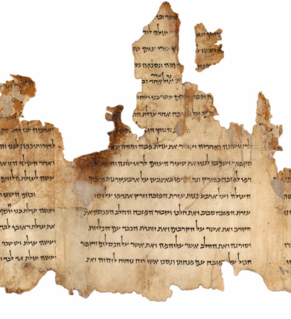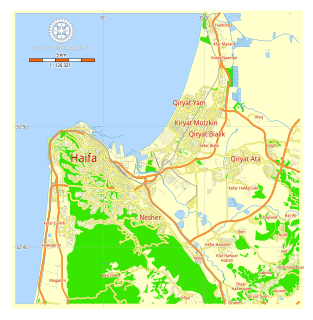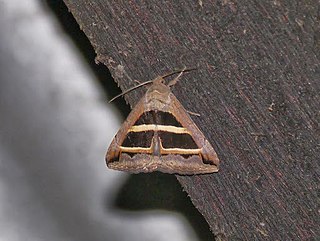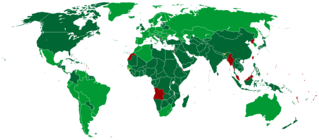Fair use is a doctrine in the law of the United States that permits limited use of copyrighted material without having to first acquire permission from the copyright holder. Fair use is one of the limitations to copyright intended to balance the interests of copyright holders with the public interest in the wider distribution and use of creative works by allowing as a defense to copyright infringement claims certain limited uses that might otherwise be considered infringement. Unlike "fair dealing" rights that exist in most countries with a British legal history, the fair use right is a general exception that applies to all different kinds of uses with all types of works and turns on a flexible proportionality test that examines the purpose of the use, the amount used, and the impact on the market of the original work.

Hebrew is a Northwest Semitic language native to Israel. In 2013, Modern Hebrew was spoken by over nine million people worldwide. Historically, it is regarded as the language of the Israelites, Judeans and their ancestors; however, the language was not referred to by the name "Hebrew" in the Tanakh itself. The Mishnah Megillah refers to the Hebrew language as Ashurit meaning Assyrian, which is a metonym derived from the name of the alphabet. The earliest examples of written Paleo-Hebrew date to the 10th century BCE. Hebrew belongs to the Northwest Semitic branch of the Afroasiatic language family, and is the only Canaanite language still spoken and the only truly successful example of a revived dead language, and one of only two Northwest Semitic languages still spoken, the other being Aramaic, which is spoken primarily by Christian Assyrians and Syriac-Arameans, the Gnostic Mandeans as well as some Near Eastern Jews.

Jerusalem is a city in the Middle East, on a plateau in the Judaean Mountains between the Mediterranean and the Dead Sea. It is one of the oldest cities in the world, and is considered holy to the three major Abrahamic religions—Judaism, Christianity, and Islam. Both Israel and the Palestinian Authority claim Jerusalem as their capital, as Israel maintains its primary governmental institutions there and the State of Palestine ultimately foresees it as its seat of power; however, neither claim is widely recognized internationally.

Tel Aviv-Yafo, often referred to as just Tel Aviv, is the most populous city in the Gush Dan metropolitan area of Israel. Located on the Israeli Mediterranean coastline and with a population of 460,613, it is the economic and technological center of the country. If East Jerusalem is considered part of Israel, Tel Aviv is the country's second most populous city after Jerusalem; if not, Tel Aviv is the most populous city before West Jerusalem.

The USS Liberty incident was an attack on a United States Navy technical research ship, USS Liberty, by Israeli Air Force jet fighter aircraft and Israeli Navy motor torpedo boats, on 8 June 1967, during the Six-Day War. The combined air and sea attack killed 34 crew members, wounded 171 crew members, and severely damaged the ship. At the time, the ship was in international waters north of the Sinai Peninsula, about 25.5 nmi northwest from the Egyptian city of Arish.

The West Bank is a landlocked territory near the Mediterranean coast of Western Asia, bordered by Jordan and the Dead Sea to the east and by Israel to the south, west and north. Under Israeli occupation since 1967, the area is split into 167 Palestinian "islands" under partial Palestinian National Authority civil rule, and 230 Israeli settlements into which Israeli law is "pipelined".

Haifa is the third-largest city in Israel – after Jerusalem and Tel Aviv – with a population of 285,316 in 2019. The city of Haifa forms part of the Haifa metropolitan area, the second- or third-most populous metropolitan area in Israel. It is home to the Baháʼí Faith's Baháʼí World Centre, and is a UNESCO World Heritage Site and a destination for Baháʼí pilgrimage.

The Dead Sea Scrolls are ancient Jewish religious manuscripts that were found in the Qumran Caves in the Judaean Desert, near Ein Feshkha on the northern shore of the Dead Sea in the West Bank. Scholarly consensus dates these scrolls from the last three centuries BCE and the first century CE. The texts have great historical, religious, and linguistic significance because they include the second-oldest known surviving manuscripts of works later included in the Hebrew Bible canon, along with deuterocanonical and extra-biblical manuscripts which preserve evidence of the diversity of religious thought in late Second Temple Judaism. Almost all of the Dead Sea Scrolls are held by the state of Israel in the Shrine of the Book on the grounds of the Israel Museum, but ownership of the scrolls is disputed by Jordan and Palestine.

Palestine, recognized officially as the State of Palestine by the United Nations and other entities, is a de jure sovereign state in Western Asia claiming the West Bank and Gaza Strip with Jerusalem as the designated capital, although its administrative center is currently located in Ramallah. The entirety of territory claimed by the State of Palestine has been occupied since 1948, first by Egypt and Jordan and then by Israel after the Six-Day War in 1967. Palestine has a population of 5,051,953 as of February 2020, ranked 121st in the world.

Ashdod is the sixth-largest city and the largest port in Israel accounting for 60% of the country's imported goods. Ashdod is located in the Southern District of the country, on the Mediterranean coast where it is situated between Tel Aviv to the north 32 kilometres away, and Ashkelon to the south 20 km (12 mi) away. Jerusalem is 53 km (33 mi) to the east. The city is also an important regional industrial center.
A binary option is a financial exotic option in which the payoff is either some fixed monetary amount or nothing at all. The two main types of binary options are the cash-or-nothing binary option and the asset-or-nothing binary option. The former pays some fixed amount of cash if the option expires in-the-money while the latter pays the value of the underlying security. They are also called all-or-nothing options, digital options, and fixed return options (FROs).
A total of 55 teams entered the 1958 FIFA World Cup qualification rounds, competing for a total of 16 spots in the final tournament. Sweden as the hosts and West Germany, as the defending champions, qualified automatically, leaving 14 spots open for competition.

Israeli citizenship law regulates who are and can become citizens of Israel.

Israel, officially known as the State of Israel, is a country in Western Asia, located on the southeastern shore of the Mediterranean Sea and the northern shore of the Red Sea. It has land borders with Lebanon to the north, Syria to the northeast, Jordan on the east, the Palestinian territories of the West Bank and the Gaza Strip to the east and west, respectively, and Egypt to the southwest. Israel's economic and technological center is Tel Aviv, while its seat of government and proclaimed capital is Jerusalem, although international recognition of the state's sovereignty over Jerusalem is limited.

The United Nations Educational, Scientific and Cultural Organization is a specialised agency of the United Nations (UN) aimed at promoting world peace and security through international cooperation in education, the sciences, and culture. It has 193 member states and 11 associate members, as well as partners in the nongovernmental, intergovernmental, and private sector. Headquartered in Paris, France, UNESCO has 53 regional field offices and 199 national commissions that facilitate its global mandate.

Catocala puerpera is a moth of the family Erebidae first described by Michel-Esprit Giorna in 1791. It is found in Mediterranean and sub-Mediterranean areas of the Near East and Middle East and in North Africa.

Grammodes bifasciata is a moth of the family Erebidae first described by Vincenzo Petagna in 1787. It is found in Madagascar, eastern Africa, North Africa and other parts of the Mediterranean Basin, including south of France and Israel.
This is a record of Israel's results at the FIFA World Cup. They have qualified for the tournament on one occasion, in 1970. Israel qualified for the 1970 World Cup as an Asian team. Soon after this, they were expelled from the Asian Football Confederation, and now compete in the European zone as a member of UEFA.

The Mandatory Palestine national football team, also known as the Eretz Israel national football team, represented the British Mandate of Palestine in international football competitions, and was managed by the Palestine Football Association.

The International Convention on the Elimination of All Forms of Racial Discrimination (ICERD) is a United Nations convention. A third-generation human rights instrument, the Convention commits its members to the elimination of racial discrimination and the promotion of understanding among all races. The Convention also requires its parties to outlaw hate speech and criminalize membership in racist organizations.















